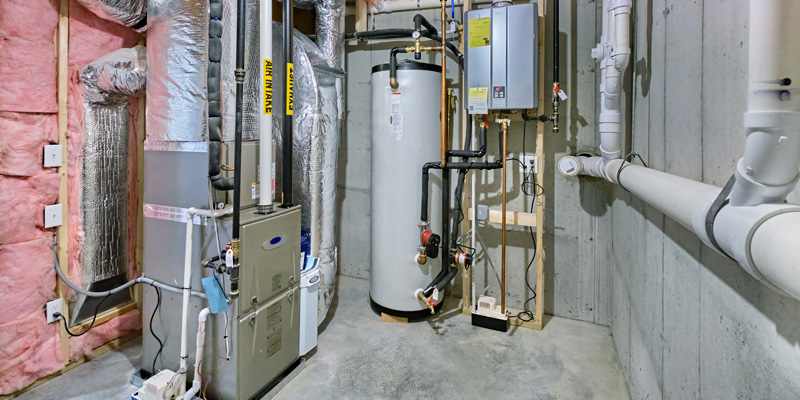Heating and Cooling
Furnaces and Boilers
How They Work

Most homes in the U.S. are heated with either furnaces or boilers. Furnaces heat air and distribute the heated air through the house using ducts. Boilers heat water and provide either hot water or steam for heating. Although older fossil fuel (natural gas, propane, or oil) furnace and boiler systems have efficiencies in the range of 56% to 70%, modern furnace and boiler systems can achieve efficiencies as high as 98.5%, converting nearly all the fuel to useful heat for your home. Installing a new high-efficiency heating system can often cut your fuel bills and your furnace’s pollution output in half. Find more information about furnaces and boilers here.
What Assistance Is Available for Me?
The federal government offers a tax credit of up to 30% of the cost of the purchase and installation of a furnace or boiler (up to $600 credit).
- Find federal tax credit information for furnaces here.
- Find federal tax credit information for boilers here.
What Products Are Eligible?
Eligibility for the federal tax credit depends mostly on fuel type and efficiency:
- Only gas furnaces that are ENERGY STAR certified with an AFUE of at least 97% are eligible. Oil-fired furnaces must be ENERGY STAR certified and rated by the manufacturer for use with fuel blends with at least 20% of the volume consisting of biodiesel, renewable diesel, or second-generation biofuel. Find eligible furnaces here.
- Only gas-fired boilers that are ENERGY STAR certified with an AFUE of at least 95% are eligible. Oil-fired boilers must be ENERGY STAR certified and rated by the manufacturer for use with fuel blends with at least 20% of the volume consisting of biodiesel, renewable diesel, or second-generation biofuel. Find eligible boilers here.
Important Dates
The federal tax credits are available for products purchased and installed between January 1, 2023, and December 31, 2032.
